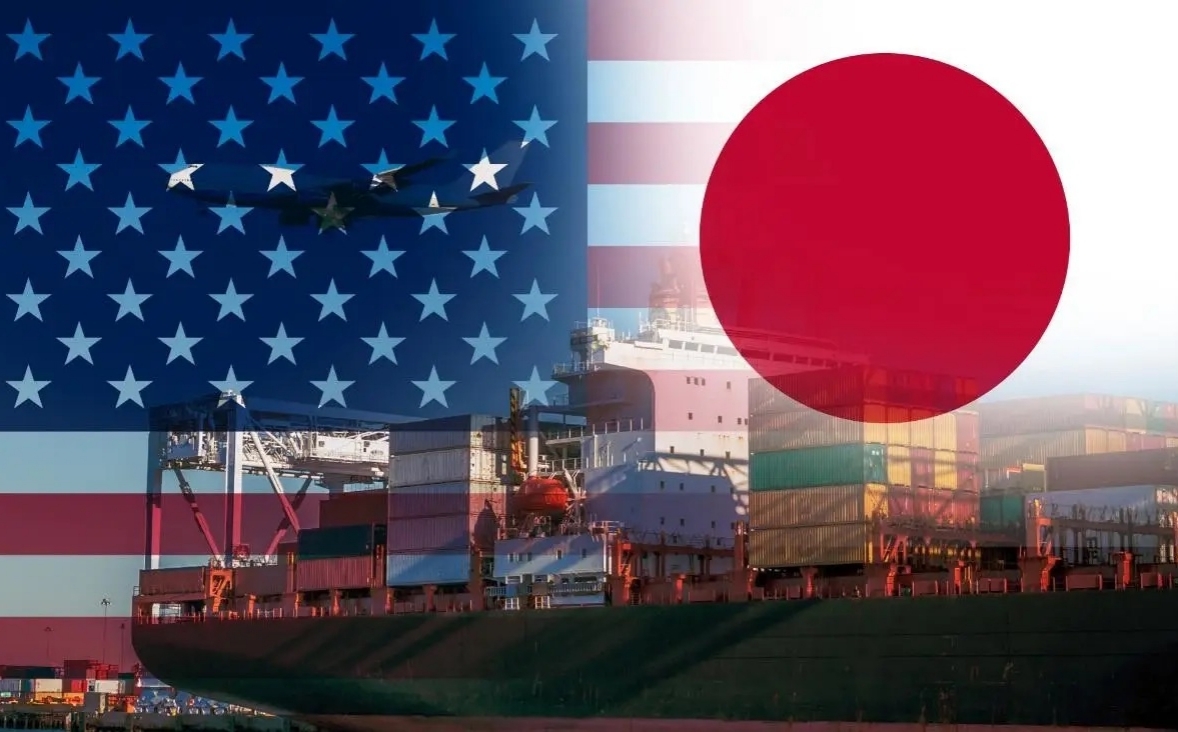
On July 2, 2025, US President Trump delivered a speech to accompanying journalists on Air Force One, admitting that the prospects for US Japan trade negotiations were uncertain: "We have already dealt with Japan, but we are not sure if we will reach an agreement." This statement pushed the trade confrontation between the two countries, which had lasted for months, to the edge of a cliff. As the deadline for tariff exemptions on July 9th approaches, this tug of war over car tariffs is evolving into the biggest setback for Trump's global strategy of "reciprocal tariffs".
The Trump administration has shown its trump card. On Monday, the president announced that he would "send a letter" to Japan specifying the fees it needs to pay, and the next day threatened to impose tariffs of "30% or 35% or any number we determine" on Japanese goods. According to insiders, Commerce Secretary Lutnik and Trade Representative Greer have issued a warning to Tokyo that if the situation cannot be resolved quickly, the US will shift from tariff deferral to punitive measures, including quota restrictions on Japanese car exports. Analysts point out that this move marks a substantial break in negotiations and casts a heavy shadow over the White House's commitment to reach a series of trade agreements before July 9th.
Japan's resistance has shown rare resilience. Since the United States temporarily suspended the 24% "equivalent tariff" in April, Chief Negotiator Ryo Akazawa has been traveling to Washington seven times, always sticking to the same position - refusing to accept any agreement that retains the 25% car tariff. Even in the face of the threat of quota system, Japanese officials still refuse to budge. Behind this tough stance is a cruel economic reality: Japanese car companies have profit margins of less than 5%, and a 25% tariff will directly squeeze the industry's lifeline with an annual output value of $24 billion, affecting 6000 local parts companies and 450000 jobs. Akira Akazawa has repeatedly emphasized that Japanese car manufacturers have produced 3.3 million vehicles domestically in the United States, far exceeding the 1.37 million vehicles exported to the United States, and have invested a total of $60 billion, creating 2.3 million job opportunities. Automobiles are a major national interest, "Prime Minister Shigeru Ishiba emphasized to the media after meeting with Trump at the G7 summit in June." We will continue to make every effort to protect these interests
The political countdown has further compressed Japan's room for maneuver. The Senate elections on July 20th are approaching, and any agreement seen as sacrificing agriculture to protect the automotive industry could trigger a voter backlash. On July 1st, Chief Cabinet Secretary Lin Fangzheng made it clear that "agriculture will not be sacrificed in tariff negotiations." The Liberal Democratic Party's traditional vote warehouse in rural areas has made the opening of the rice market an untouchable red line, although it was once a potential bargaining chip for Japan to exchange for concessions on car tariffs. Some officials privately worry that if the agreement fails to substantially reduce tariffs, it may trigger the collapse of the cabinet.
The deadlock at the negotiation table reflects a misalignment of strategies between both parties. Japan has proposed to deepen cooperation in shipbuilding, aviation, and rare earth supply, but the US believes that these long-term plans cannot immediately resolve the $78.4 billion trade deficit. However, during his recent trip to Washington, Ryohei Akazawa only had one hour of consultations with Commerce Secretary Lutnik and was unable to meet with key decision maker Treasury Secretary Besson, highlighting the freezing of communication channels. Most of the time, when I take off from Haneda Airport, I don't have a confirmed meeting schedule, "Akazawa said with a bitter smile after returning to Japan." If Trump really wants to send a message, you will probably see it on Truth Social first. ”
The trade dilemma of the United States is not limited to Tokyo. Canada suspended negotiations after Trump unexpectedly doubled steel tariffs in June, and although dialogue resumed on June 30 due to the cancellation of the digital services tax, there are still variables in reaching an agreement before July 21. Negotiations with South Korea have also been mired in a digital trade dispute, with Seoul seeking tariff reductions on automotive and steel, but its e-commerce regulatory proposal has been strongly opposed by the US. Although the White House spokesperson claimed to work "day and night," Republican Senator Kevin Kramer admitted that the government had set "overly ambitious expectations.
As the bell is about to ring on July 9th, Trump announced that he is not considering an extension. However, there is still a glimmer of luck in the market - Rajiv de Mello, fund manager at GAMA Asset Management in Geneva, speculates that "the call is louder than the bite, and the United States may postpone most of the excess tariffs and maintain the 10% benchmark tax rate." But regardless of the outcome, this game has rewritten global trade rules: when economic security becomes synonymous with national core interests, the cracks in traditional allies are measured by tariff percentages.

Driven by the Trump administration's push to relax financial regulations and the recovery of investment banking business, the market value of the six major banks in the United States has cumulatively increased by approximately 600 billion US dollars by 2025.
Driven by the Trump administration's push to relax financia…
On Christmas evening, U.S. President Trump posted on social…
According to multiple foreign media reports, the recent fin…
The middle class, once regarded as the cornerstone of Ameri…
On December 19th local time, the US military launched a lar…
The Boxing Day sunshine should have cast a false glow of pr…